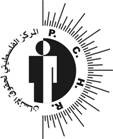Palestinian Center for Human Rights 2 July 2006

PCHR calls upon all governments and countries in the international community, especially the High Contracting Parties of the Geneva Conventions, United Nations bodies, and all international humanitarian organizations to intervene and take immediate steps to force IOF to allow the flow of basic goods, fuel, food, and medical supplies into the Gaza Strip. The Centre warns the international community of the consequences of the collective punishment imposed by IOF on the civilian population in the Gaza Strip, especially the destruction of the electricity power station, prevention of the import of fuel to run basic services (such as sewage disposal facilities, drinking water supplies, hospitals, clinics, etc.). A food and health crisis now threatens more than 1.5 million Palestinians in the Gaza Strip.
PCHR is monitoring the acute deterioration in the economic and social situation, as a result of the complete closure imposed by IOF on the Gaza Strip. The Centre is concerned that there will be further deterioration in the food and health conditions of the civilian population, as more than 200,000 families have now lost their primary source of electricity, following the IOF bombardment of the Gaza power plant on 27 June 2006. The humanitarian situation is complicated further by the depletion of fuel supplies in the Gaza Strip. As a result, dozens of organizations providing basic services may be forced to suspend provision of these services to the population; hundreds of transportation vehicles can no longer be run; and many drinking water sources have stopped functioning. The situation threatens public health, particularly if sewage disposal facilities are forced to stop due to the lack of fuel.
PCHR’s information indicates that on 25 June 2006, IOF tightened the aerial, sea and land closure of the Gaza Strip, closing all border crossings. IOF have prevented the free flow of fuel, food and medical supplies since. In addition, IOF prevented civilians from leaving the Gaza Strip, including those in need of medical treatment abroad. Civilians were also prevented from returning to the Strip, including those who were abroad for medical treatment. As a result, they are now stuck on the Egyptian side of the border in Rafah, prevented from passing through Rafah International Crossing Point, the only outlet to and from the outside world. According to the Ministry of Health, more than 100,000 Palestinian medical patients are being deprived of treatment outside the Strip, whether in the West Bank, Israel, or other places. Furthermore, the destruction of the Gaza power plant has increased dependence on fuel to run essential services, especially health and environmental services.
The Gaza Strip was suffering from a lack gas and fuel even before the latest tightening of the closure. The Gaza Strip’s needs are estimated at 150-200 tons of gas daily. 12 million tons of kerosene and 5 million tons of benzene are needed annually. In addition, 10 million tons of kerosene were needed to run the Gaza power station, when it was running normally prior to the Israeli air strike. Fuel stations indicate that the Israeli company Dor started to reduce the supply of gas and fuel to the OPT on 5 April 2006 to only 25% of the daily demand, under the pretext of a Palestinian debt owed to the company. On 15 April 2006, fuel and gas stations in the Strip stopped providing fuel after their reserves ran out. At the end of May 2006, the company resumed supplying the Strip with 25% of the demand. On 25 June 2006, the company completely stopped the supply. As a result, most fuel stations in the southern Gaza Strip have now stopped working. Since the stoppage, the fuel reserve has also run out in private fuel stations.
PCHR has learned that local governmental agencies and municipalities are now suffering as a result of the lack of kerosene to run sewage disposal facilities. In addition, hospitals and clinics are suffering from the lack of fuel needed to run ambulances and provide services.
PCHR calls upon the international community and international governmental and non-governmental humanitarian organizations to immediately intervene and pressure IOF to allow the free import of fuel, gas, medicine and food to the civilian population of the Gaza Strip. This comes in line with enforcing International Humanitarian Law and International Human Rights Law in the area. In addition, the Centre reminds the contracting parties to various international law conventions, including Israeli occupation authorities, of their obligations, especially:
In accordance with article 54 of the Protocol 1, the High Contracting Parties are obliged to ensure the respect of the following obligations:
In accordance with article 33 of the Fourth Geneva Convention, the High Contracting Parties should guarantee that:
According to article 54 of the 4th Geneva Convention, the High Contracting Parties should
Everyone has the right to a standard of living adequate for the health and well-being of himself and of his family, including food, clothing, housing and medical care and necessary social services, and the right to security in the event of unemployment, sickness, disability, widowhood, old age or other lack of livelihood in circumstances beyond his control. (Article 25 of the Universal Declaration of Human Rights)
The Palestinian Centre for Human Rights (PCHR) is an independent legal body based in Gaza City dedicated to protecting human rights, promoting the rule of law and upholding democratic principles in the Occupied Palestinian Territory. It holds Special Consultative Status with the Economic and Social Council (ECOSOC) of the United Nations and is an affiliate of the International Commission of Jurists, the Fédération Internationale des Ligues des Droits de l’Homme (FIDH), and the Euro-Mediterranean Human Rights Network. PCHR is a recipient of the 1996 French Republic Award for Human Rights.
Related Links